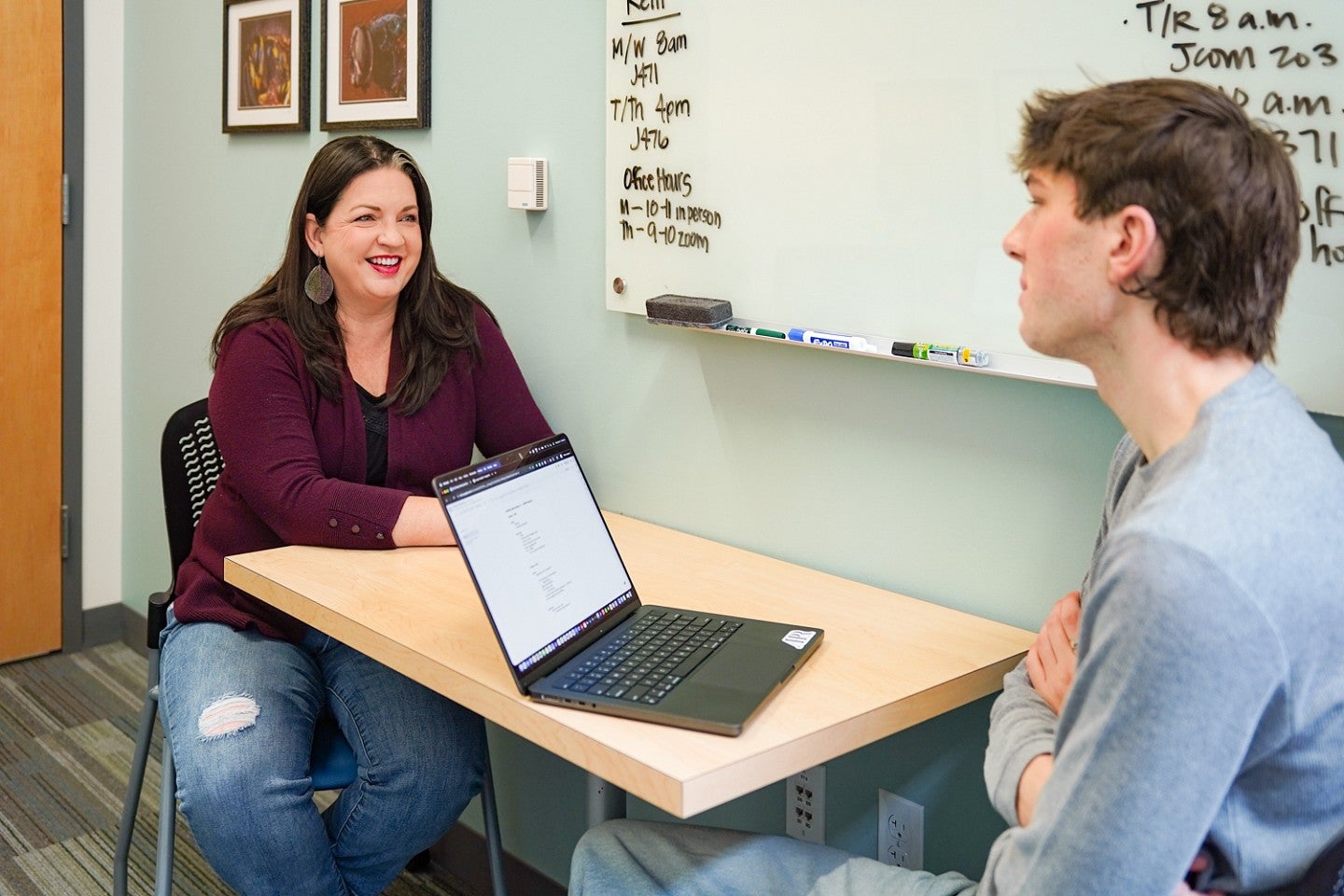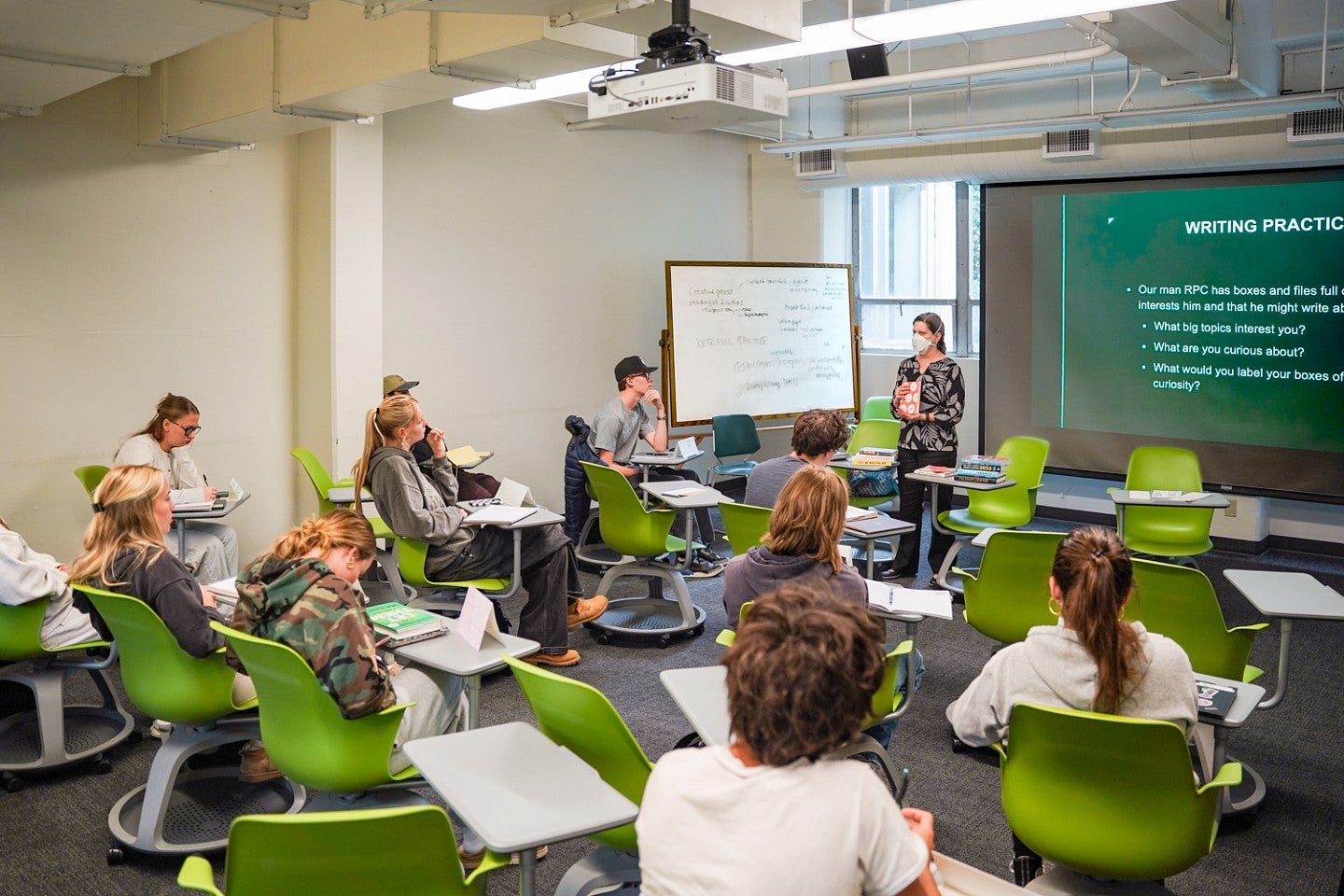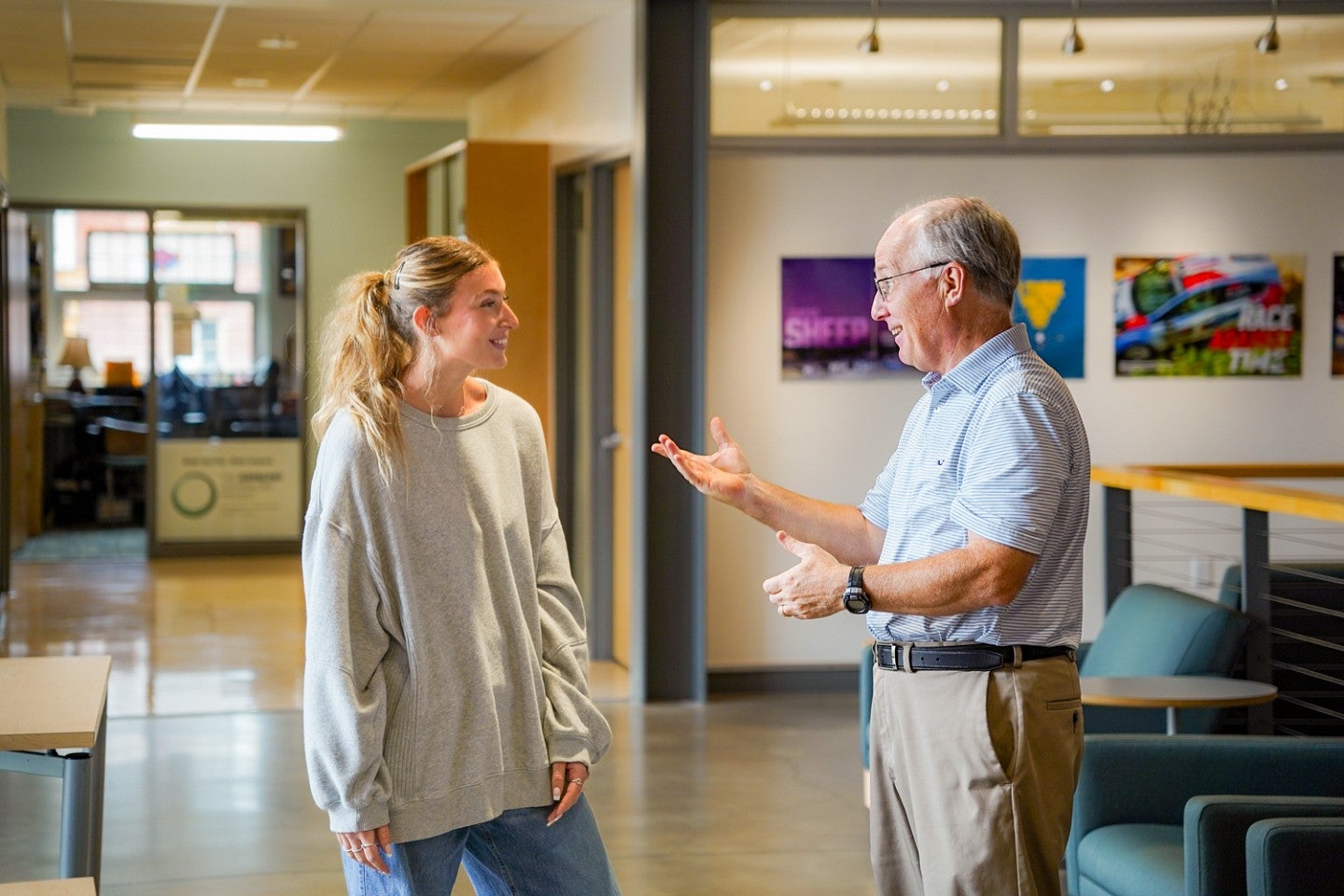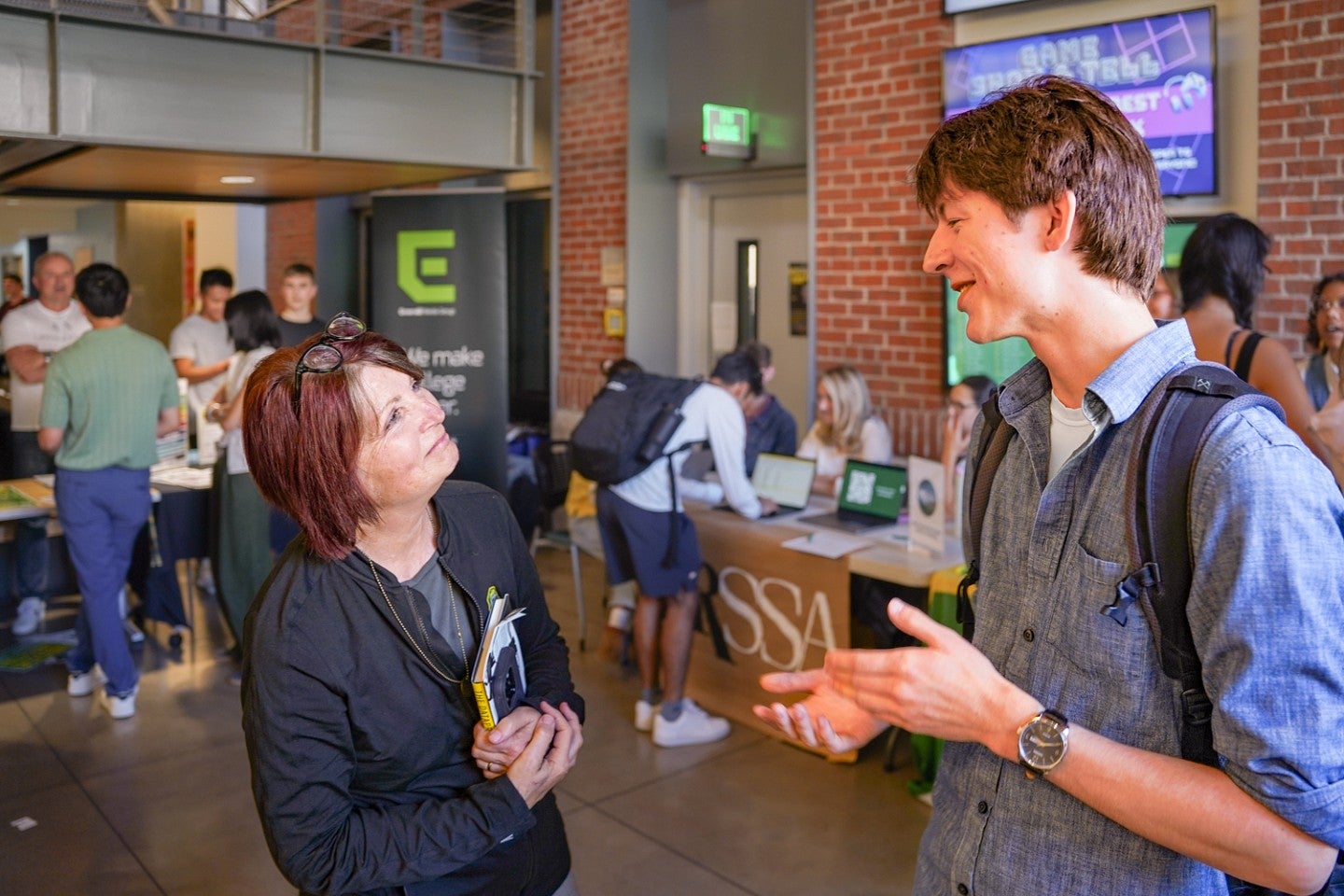Faculty share ways students can build relationships that open doors to internships, jobs and long-term career opportunities.
by Sophie Fowler, Class of ’26
It can be difficult to find internships and jobs as an undergraduate student. One way to get your foot in the door is by tapping into faculty connections at the UO School of Journalism and Communication (SOJC). When they build relationships with faculty, students are more likely to learn about internships and jobs while they are still in school.
Professors from advertising, journalism, media studies and public relations offer these five tips on creating networking opportunities with faculty:

Tip 1: Go to office hours.
From Kelli Matthews, teaching professor of public relations
Although it might seem like a simple tip, having one-on-one conversations with your professors is key to learning about opportunities inside and outside the SOJC, Matthews says. Matthews enjoys talking with students during office hours because it gives her a chance to learn more about them.
“When I know more about my students' interests and goals, I am better able to look out for opportunities for them,” she said.
SOJC alum Alvin Kim ’19, who graduated with a degree in public relations, is grateful for the time he spent attending professors’ office hours. His best advice for students is to schedule time with faculty, make a list of questions and talk to professors, human to human.
“Realize that they’re human and they were once in your shoes,” said Kim, who is now director of marketing at TriplePoint Capital. “A lot of the time I would go to professors Matthews, (Lance) Robertson, (Courtney) Munther and (Dean) Mundy’s office hours just to learn about their experiences and ask for their candid advice on situations I was finding myself in or questions that would come up throughout my journey.”

Tip 2: Do the work in class and relish critical feedback.
From Lori Shontz, journalism professor of practice
The work you produce in class is more than just an assignment. It lays the foundation for your portfolio that you’ll use to apply for internships and jobs as you get ready to graduate, Shontz said. Do your best work and incorporate the feedback you get. Those suggestions will help prepare you for your future career.
“Criticism is part of the industry, especially in journalism,” Shontz said. “Newsrooms throw you in immediately and expect you to come in with the skills you need to do the job. They don’t train new employees, as some other industries do.”
Because of that, it’s even more important for students to make the most of classwork and feedback, Shontz said.
“I can’t fix the industry, but I can prepare students for the feedback and criticism they’ll get on the job and help them see that it’s a compliment,” she said. “You’re worth it, and I will help you get better.”
Shontz echoes the importance of attending drop-in hours and getting to know your professors. Since opportunities often come up quickly, you want to be front of mind. Professors who know you well are more likely to recommend you for opportunities that suit you.
“I want to match students and employers in a way that’s beneficial to both,” Shontz said. “And that requires me to know the student very well, and I don’t want to recommend a student who’s not a good fit. I want them to feel that it’s a good fit.”

Tip 3: Roam around and don’t be afraid to talk.
From Charlie Butler, journalism professor of practice
Butler’s best advice for students is to knock on a door, even if you don’t know the professor. He recommends finding a professor who’s done work in an area you’re interested in or cold emailing them to set up a meeting.
“A lot of professors have an open-door policy. Just knock on a door and don’t be afraid to say, ‘Hi,’” Butler advised. “Drop a note or walk around and knock on a door.”
Tip 4: Ask your professors who they know.
From Maxwell Foxman, associate professor of media and game studies
Foxman encourages students to ask faculty about their professional connections and request introductions.
“I’m happy to share who I know and what I know with students,” Foxman said.
Foxman will send out information about opportunities through Canvas or the game studies Discord account, which students from his classes have access to. He recommends students respond promptly when professors send information about internships, jobs and other opportunities.
“I do actually think that it never hurts for students to email their professors and actively let them know what they're doing and what they're interested in, because we do get a lot of job calls and a lot of job opportunities, and having specific students in mind really helps,” Foxman said.

Tip 5: Pay attention to email.
From Deb Morrison, distinguished professor of advertising and associate dean for undergraduate affairs
You know all those weekly newsletters that come to your inbox? Don’t delete them without giving them a scan. That’s Morrison’s advice.
The SOJC student weekly newsletter lists on-campus and off-campus jobs and internships throughout the year.
“So many students don’t read the emails,” Morrison said. “I wish I had a dollar for every person who told me they don’t read it.”
Some SOJC majors also have their own weekly newsletters, and the school’s official “Inside SOJC” newsletter goes out to students monthly. So make sure to check your email.
Don’t wait until the end of spring term to start thinking about internships and jobs. Use these five tips and get started now. You won’t regret it!
Sophie Fowler, class of ’26, is a fourth-year journalism major with a minor in multimedia. She is a member of Duck TV, a student in the Clark Honors College, and an intern with Quack Video and the SOJC Communication team. She worked for the Redmond Spokesman as a Charles Snowden Program for Excellence in Journalism intern and also interned for TrackTown USA. You can connect with her on LinkedIn.
